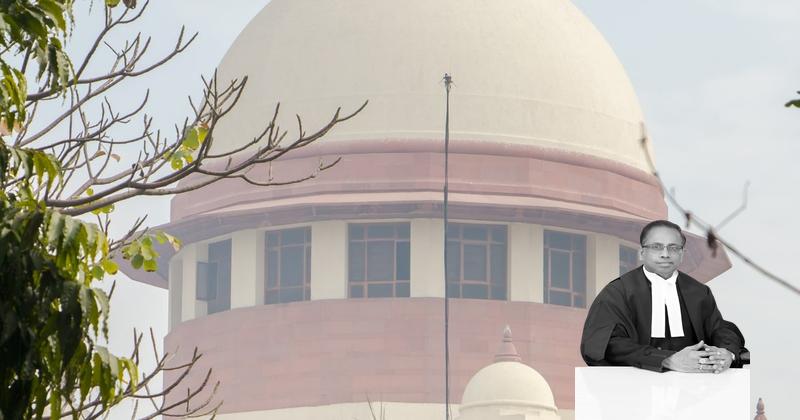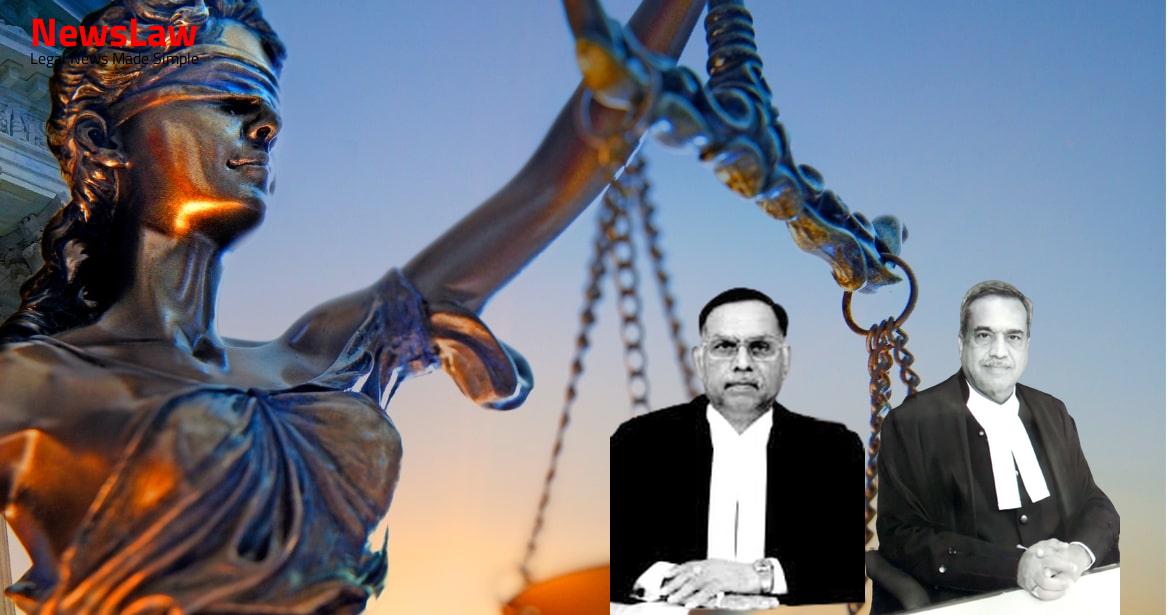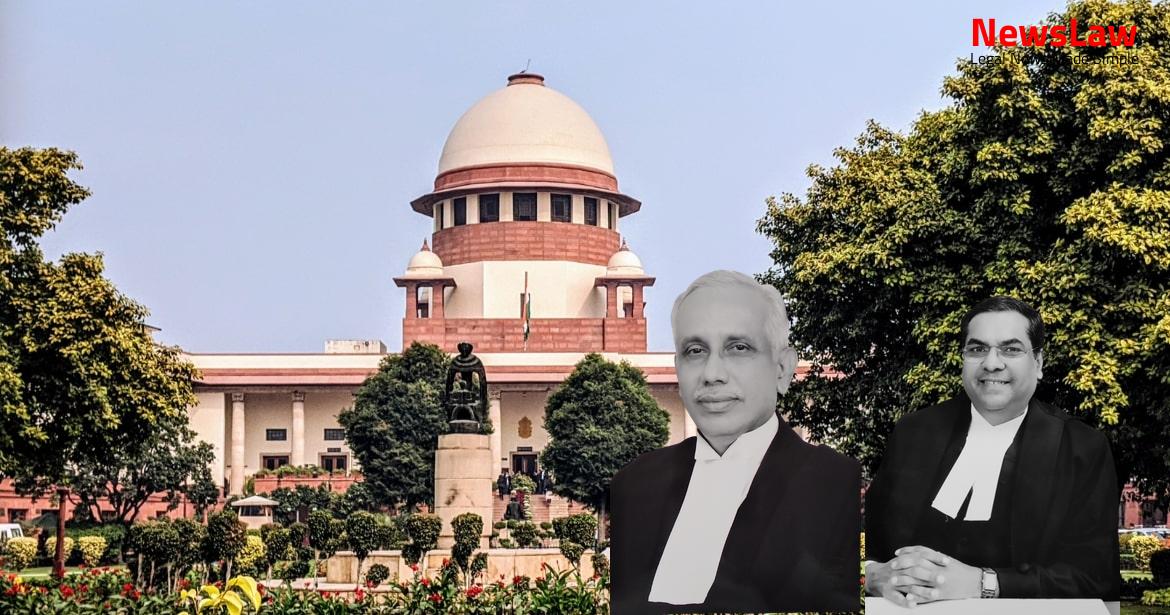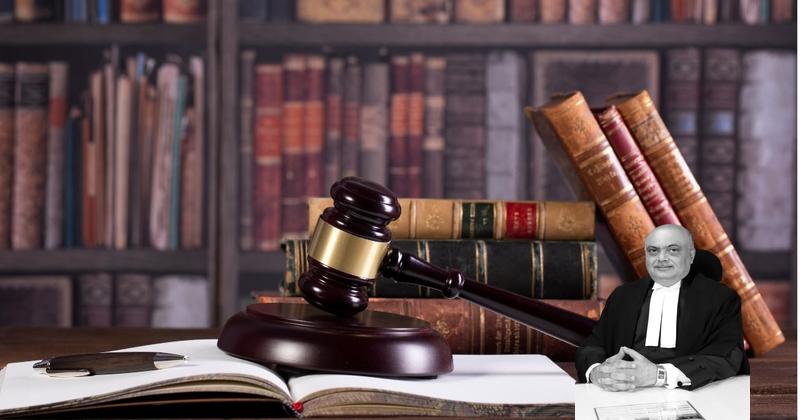The Appellants assail the judgment dated 18.02.2021, passed by the High Court of Karnataka, at Bengaluru (hereinafter, ‘High Court’), whereby their Criminal Revision Petition challenging the order dated 15.03.2018 of the VI Additional Chief Metropolitan Magistrate, Bengaluru (hereinafter, ‘Trial Magistrate’) has been dismissed. It is the Appellants’ case that Respondent No 2 initially refused to take the Appellant – wife with him, but after considerable persuasion, she managed to accompany Respondent No 2 to London. Shariff would accommodate the Appellant – wife and the minor child during their visit to the United Kingdom and specifically mentioned the minor child’s passport number. 2 also lodged a complaint of his own on 13.05.2010 before the Adugodi Police Station, alleging that the Appellants had forged his signatures on the minor child’s passport application and submitted the same to the Regional Passport Office, Bengaluru, at the time when Respondent No 2 was in the United Kingdom.
This complaint was registered as FIR No 141/2010 under Sections 420, 468 and 471 read with Section 34 IPC (hereinafter, ‘Concerned FIR’).
The Appellants consequently moved an application under Section 239 CrPC, seeking discharge in CC No 23545 / 2011. The supplementary chargesheet also referred to a report provided by the State Forensic Laboratory, Madiwala, Bengaluru, dated 27.02.2016 (hereinafter, ‘State FSL’), which categorically states as follows: “Opinion on questioned photocopied signatures marked as Q1 to Q4 is not expressed since, the questioned photocopied signatures are showing bad line quality of strokes.” 9.
The Appellants preferred to challenge the Trial Magistrate’s order vide Criminal Revision Petition No 692 / 2018, but as noticed at the outset, the High Court dismissed the same via the impugned order 6 dated 18.02.2021, primarily on the ground that there were specific allegations against the Appellants which required a full-fledged trial. He contended that Respondent No 2 had expressly consented to obtaining the minor child’s passport and after the issuance of passport, had even sent the sponsorship letter authored by his brother-in-law, Dr. It was argued that this sponsorship letter is vital since it had been obtained at the instance of Respondent No 2
and it specifically mentioned the passport number of the minor child, thereby implying consent of Respondent No 2.
Also Read: https://newslaw.in/supreme-court/discrepancy-in-date-of-birth-courts-legal-analysis/
Yadav also highlighted the reliance placed by both the High Court and the Trial Magistrate on the opinion of a 7 handwriting expert obtained by Respondent No 2 through a private agency – known as the Truth Lab. In furtherance of this question, the following issues emerge for our further consideration: (i) Whether the actions of the Appellants prima facie constitute the offence of cheating under Section 420 IPC? In the present case, charges have been brought against the Appellants for offences punishable under Sections 420, 468, 471, 120- B, 201, read with Section 34 IPC, and Section 12(b) of the Passports Act, 1967. There are, thus, three components of this offence, i.e., (i) the deception 10 of any person, (ii) fraudulently or dishonestly inducing that person to deliver any property to any person, and (iii) mens rea or dishonest intention of the accused at the time of making the inception. ‘Cheating’ therefore, generally involves a preceding deceitful act that dishonestly induces a person to deliver any property or any part of a valuable security, prompting the induced person to undertake the said act, which they would not have done but for the inducement. Having fully addressed the contours of the offence of ‘cheating’, let us now advert to the facts of the instant case to appreciate whether the allegations made by Respondent No 2, are sufficient to prima facie establish that: (i) the Appellants have deceived Respondent No 2; (ii) Respondent No 2 was induced with dishonest intentions; (iii) such inducement was for the delivery of any property or valuable security; and (iv) as a result of such an act, Respondent No 2 has suffered some damage or injury.
The crux of Respondent No 2’s allegations is that the Appellants purportedly forged his signature on the passport application submitted to obtain the minor child’s passport.
Furthermore, the grant of passport to the minor child did not confer any benefit upon the Appellant-wife, nor did it result in any loss or damage to Respondent No 2 . Respondent No 2, the biological father and natural guardian of the minor child, is positioned as such in relation to the grant of a passport to his son. Conversely, it is the actions of Respondent No 2 that have seemingly deprived the minor child of his right to seek the care and company of his father, as the passport was allegedly taken away by Respondent No 2 in a clandestine manner. The offence of ‘forgery’ under Section 468 IPC postulates that whoever commits forgery, intending that the document or electronic document forged, shall be used for the purpose of cheating, shall be punished with imprisonment of either description for a term which may extend to seven years, and shall also be liable to fine.
Having extensively addressed the aspect of dishonest intent in the context of ‘cheating’ under Section 420 IPC, it stands established that no dishonest intent can be made out against the Appellants. The investigating agency initially found insufficient evidence to support charges under Sections 468 and 471 IPC. The provision for submitting a supplementary report infers that fresh oral or documentary evidence should be obtained rather than re- evaluating or reassessing the material already collected and considered by the investigating agency while submitting the initial police report, known as the chargesheet under Section 173(2) Regrettably, the Trial Magistrate, while directing further investigation, overlooked the significant aspect that the offences imputed upon the Appellants fall within the ambit of Chapter XVII, ‘Of Offences Against Property’, and Chapter XVIII, ‘Of Offences 18 Relating to Documents and to Property Marks’ of the IPC.
29. It is painful to mention that Respondent No 2 has not produced any other substantive proof, nor has the investigating agency obtained any such material in compliance with the Trial Magistrate’s order for further investigation. Respondent No 2 is alleged to have abandoned the Appellant – wife and the minor child, even during the period when the Appellant – wife was temporarily residing with him in London. While on the other hand, the law imposes an obligation upon Respondent No 2 to provide adequate maintenance to his wife and the minor child. In addition to the abovementioned provisions of the IPC, the Appellants have also been accused of committing an offence under Section 12(b) of the Passports Act, 1967.
Having scrutinised the elements of cheating and forgery, it is also imperative to consider the conduct of Respondent No 2 since the inception.
Firstly, following the solemnisation of the marriage between the concerned parties, the Appellant – wife purportedly endured both physical and mental torture and was further not extended any support by Respondent No 2 and his family members even after the birth of the minor child. It is undeniable that despite the evident discord between the Appellants and Respondent No 2, resulting in numerous complaints and legal proceedings, the issue at hand has adversely impacted the rights and interests of the minor child. Respondent No 2 is liable to pay the cost of Rs. 1,00,000/ to Appellant No. 1. Respondent No. 2 shall pay the costs within six weeks, failing which the Trial Magistrate is directed to initiate coercive measures for recovery thereof
Case Title: MARIAM FASIHUDDIN Vs. STATE BY ADUGODI POLICE STATION (2024 INSC 49)
Case Number: Crl.A. No.-000335-000335 / 2024



